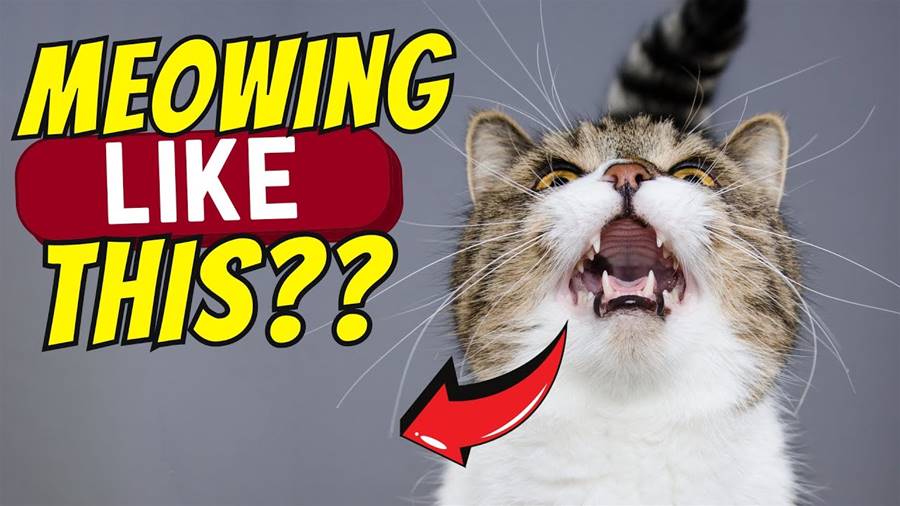
If your cat meows in a certain way, you should be worried. This article discusses the significance of a cat's distinct meowing sound and how it can indicate underlying health problems or distress. Understanding your cat's meowing patterns can help pet owners identify potential issues and seek appropriate veterinary care.
Cats communicate through various vocalizations, and the meow is one of the most common ones. However, not all meows are the same, and paying attention to the sound and tone of your cat's meow can provide valuable insights into their well-being.
While some meows are harmless and simply serve as a form of communication or attention-seeking, others may be a cause for concern.
One particular type of meow that should raise concerns is a harsh, raspy, or hoarse meow. This type of meow may be an indication of an underlying medical issue such as an upper respiratory infection, allergies, or a persistent cough. It is important to note that if your cat's meow suddenly changes in sound or becomes more frequent, it is essential to monitor their behavior closely and consult a veterinarian if necessary.
Additionally, excessive meowing can also be a sign of distress or anxiety in cats. Cats may meow excessively when they are in pain, uncomfortable, or are experiencing separation anxiety. Changes in the environment, such as moving to a new house or the addition of a new pet, can also cause stress and lead to increased meowing. By observing their behavior and noting any changes, pet owners can better identify the cause of their cat's distress and provide appropriate support.
The article is not finished. Click on the next page to continue.
The article is not finished. Click on the next page to continue.
Next page


















